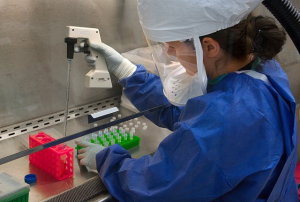
Mercury. In the form of methylmercury, it is a very harmful biological toxin. It is a threat to our brains and nervous systems and our livers and our kidneys. Too much exposure to methylmercury is likely to cause brain damage and nerve damage.
Fortunately, selenium supplements can help. And they do help. The relationship of mercury and selenium is a story with an ironic twist. To the extent that selenium binds with mercury in the body and de-toxifies the mercury – a very good thing for us – to that extent the body is robbed of selenium that could be used for the production of beneficial selenoproteins with other important biological functions.
Protecting us against the toxic effects of mercury means fewer selenoproteins to act as antioxidants neutralizing harmful free radicals, fewer selenoproteins to strengthen immune system function and thyroid function, and fewer selenoproteins to help reduce the risk of cancer.


